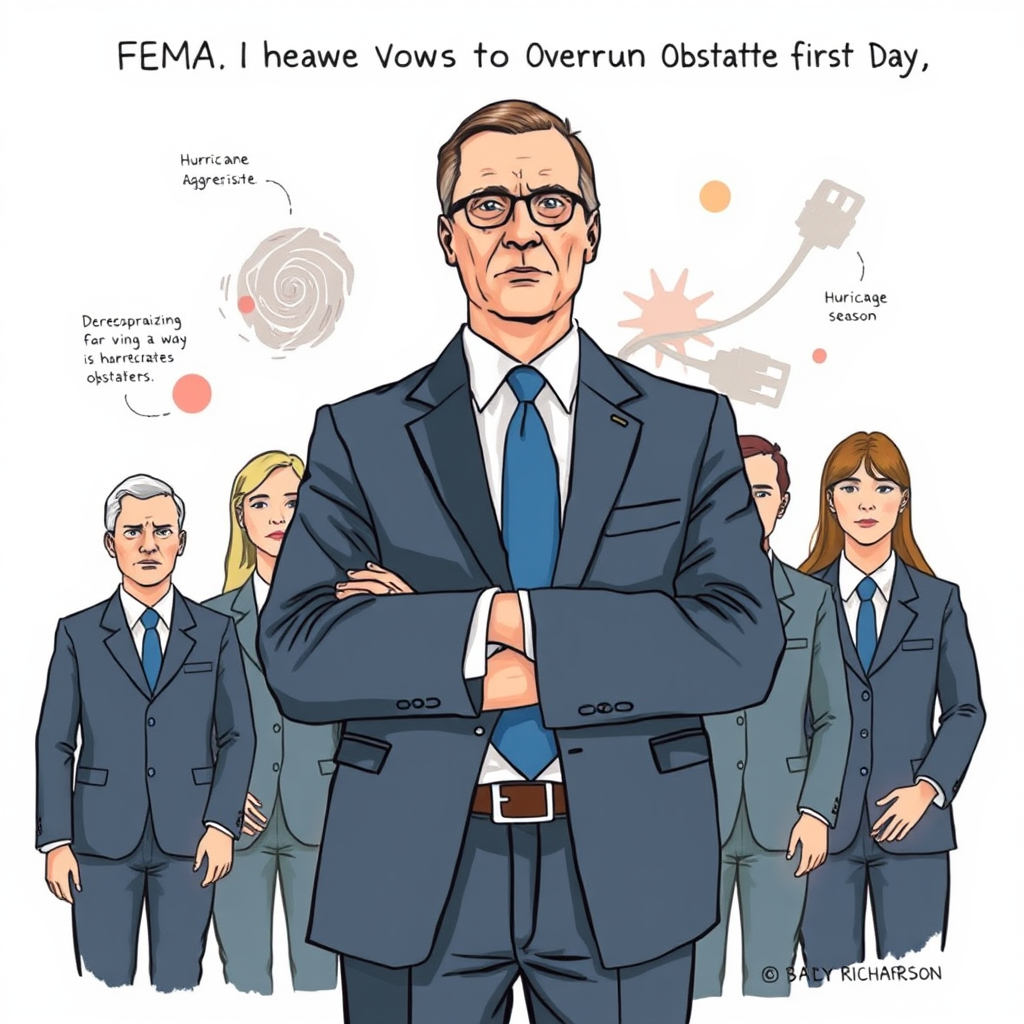FEMA Chief Vows to Overrun Obstacles on First Day

In a surprising and contentious start to his tenure, the new director of the Federal Emergency Management Agency (FEMA) took an aggressive stance with his staff. During an all-hands meeting on Friday, David Richardson vowed to ‘run right over’ anyone who might try to hinder his plans. ‘Obfuscation, delay, undermining—if you think those tactics will work, they won’t, because I will run right over you,’ Richardson declared. ‘Don’t get in my way. I know all the tricks.’
Richardson, a combat veteran with a background in countering weapons of mass destruction, replaced acting FEMA chief Cameron Hamilton. Hamilton was dismissed by Department of Homeland Security Secretary Kristi Noem after he expressed opposition to eliminating the agency during a congressional hearing. Noem and President Donald Trump have advocated for shrinking or even abolishing FEMA, arguing that many of its functions could be handled by state governments. This stance has already resulted in reduced federal aid for disaster relief.
Reuters reported that Richardson plans to streamline FEMA’s operations, focusing only on actions that are ‘within the law’ and ‘within our mission.’ However, he provided no specific details on how he intends to achieve this. On Friday, Richardson sent memos to staff instructing them to compile lists of FEMA tasks and authorities to identify redundancies and align with Trump’s vision for the agency. During the staff call, Richardson emphasized the need to ‘find out how to do things better’ and to delegate responsibilities to the states where appropriate, as well as to explore more cost-sharing arrangements with state governments.
This leadership change comes just as hurricane season is set to begin on June 1, raising concerns about the potential impact on disaster preparedness and response. The aggressive tone set by Richardson suggests a significant shift in the agency’s approach, one that could have far-reaching implications for how the U.S. responds to natural disasters and other emergencies.
This sudden change in leadership is concerning. FEMA’s mission is critical during times of crisis, and such aggressive language from the new director could demoralize staff and create an environment of fear rather than collaboration. Additionally, the push to delegate more responsibilities to the states without clear guidelines or additional resources could lead to inconsistencies in disaster response and preparedness. As hurricane season approaches, it is crucial that FEMA remains focused on its core mission of protecting and supporting communities in need.